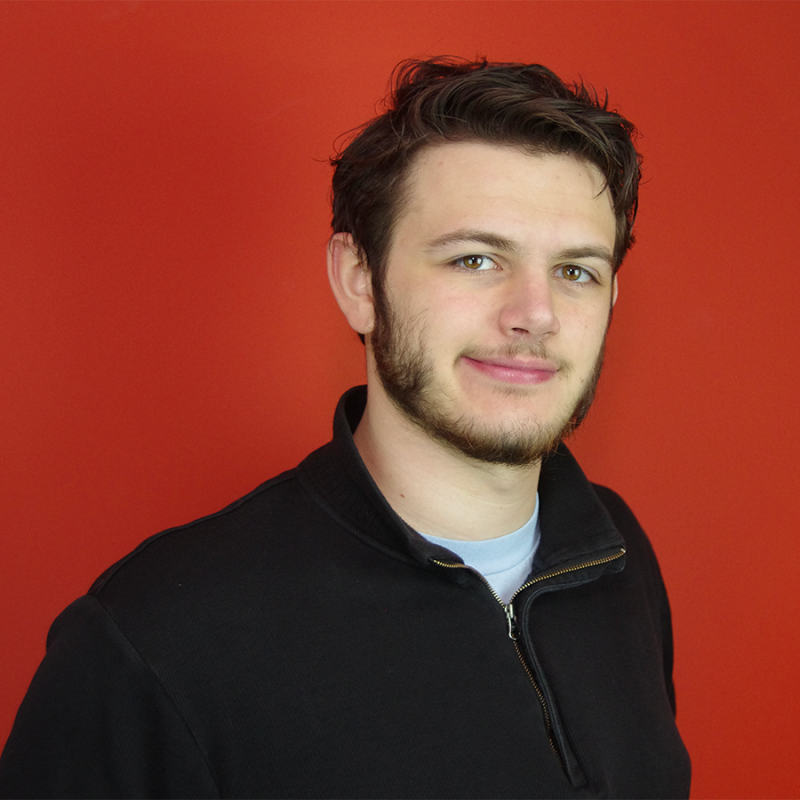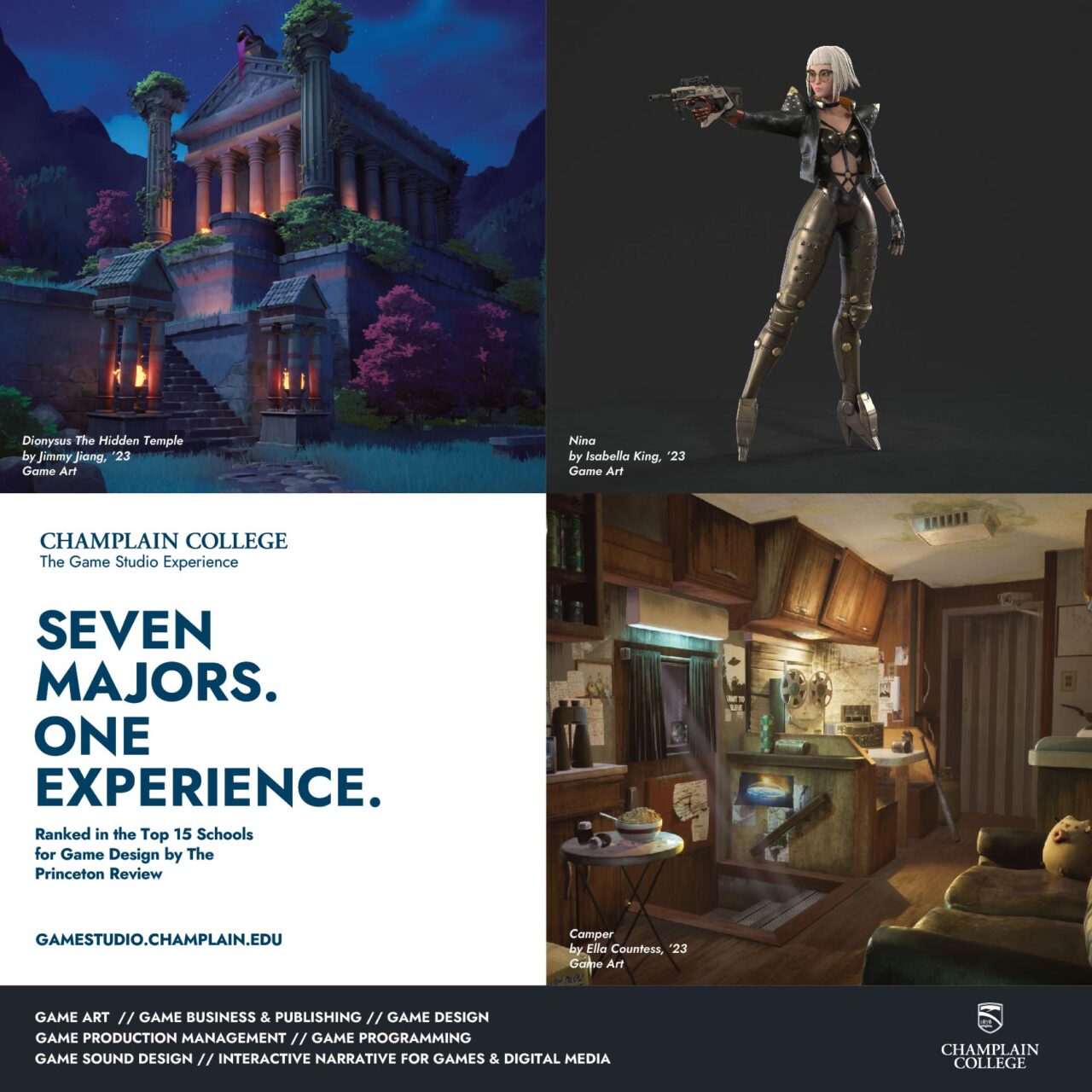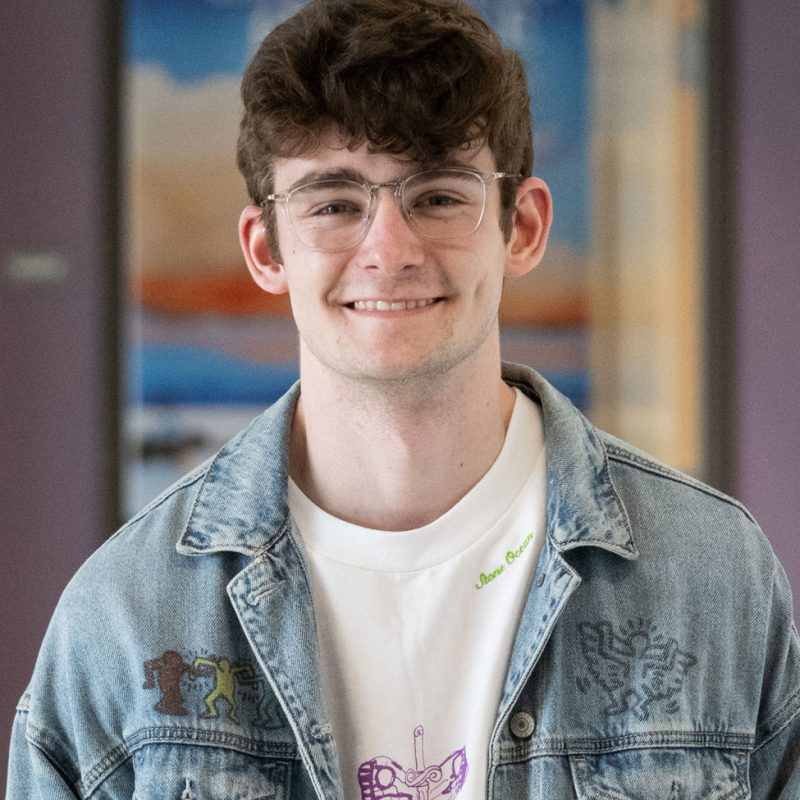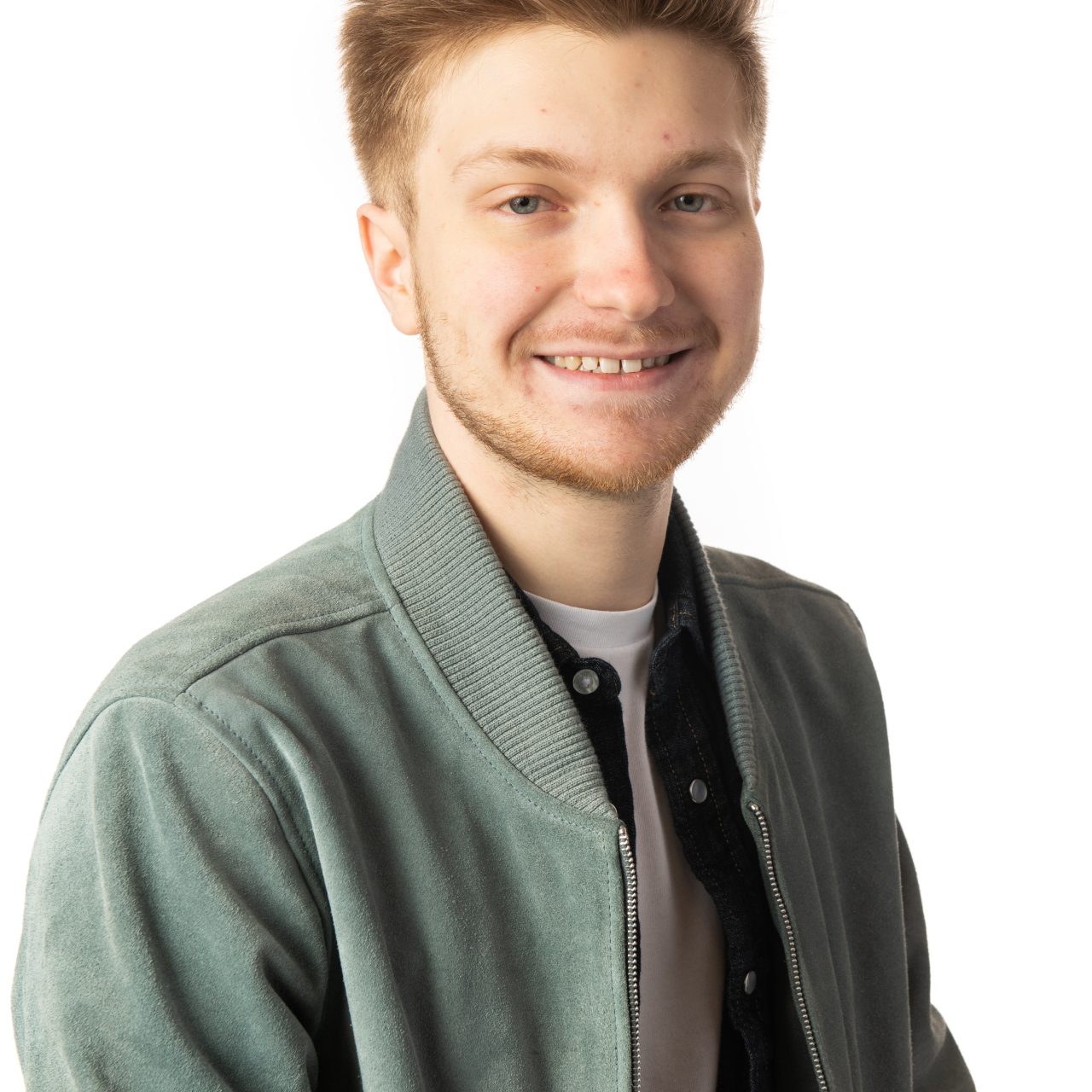
Michael DeFranco
| Major | |
|---|---|
| Graduated | 2017 |
| Hometown | Rochester, NY |
Name three highlights of your time at Champlain — they could be classes, clubs or other experiences — that best prepared you for your job at Ubisoft.
First of all, my abroad experience. I left Montreal a different and better person. I was already a good student and I was already a hard worker, but I was disorganized. Being in Montreal, doing the abroad program, made me a better developer. It made me more organized. It, overall, made me a better-rounded human being.
Then the other two, I would say, the production courses in general are always a highlight. It teaches you how to make a game, that as my former professor put it, baptism by fire. You don’t know what you’re doing, but you’re going to make a game anyway. And we do that every year. So we got better and better and better at it.
And I guess the third highlight would definitely be the kind of a club I had with my friends. Thanks to Champlain, we were able to rent out a room to use once a week for us to play a tabletop role-playing game. I am still best friends with all those people, and I still talk with them almost every day because of that.
How did the Game Studio Program prepare you for your job at Ubisoft?
Mainly that, it made me feel over-prepared. I went into the industry and it felt like everyone had certain expectations of me as a new kid, in that I wouldn’t know the way anything worked, I didn’t know how to communicate properly. But that just wasn’t true. I found myself communicating better, making a lot of documentation better than a lot of my seniors because I received this very hyper-specific education to help me with this very specific industry. It taught me what questions to ask, what to look for in games, and what makes a good game.
What do you like about working in the game industry?
My favorite part of working in games has always been how much you work with other people, and how much you work with different people, because, let me tell you, there’s a big difference between talking with a programmer, talking with a producer — which is kind of like a manager — and talking with an artist and a designer. These are four incredibly different types of people, but they all end up learning how to work together and communicate and build works of art. Even on teams where maybe I didn’t have as much fun working on the game, the people always make it worth it.
Alumni in Game Design Major
Interested in Learning More?
Fill out this form and we’ll send you info about our game majors plus a poster designed by our students!






